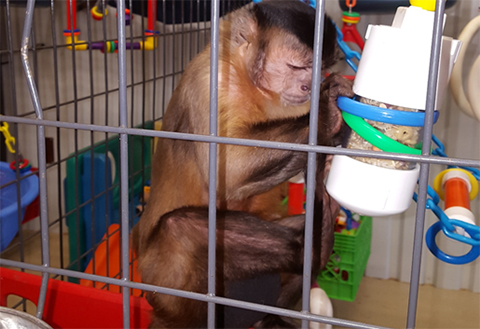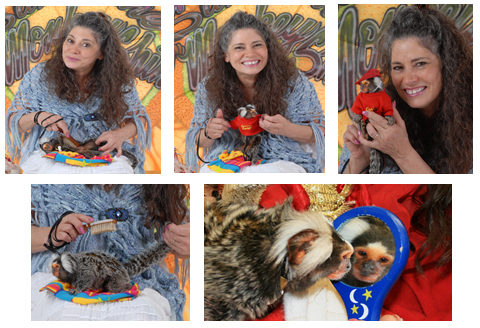By Janice Metzger

Wild-living monkeys spend the majority of their time searching for food and consuming it. Foraging activities take up the largest part of their day, followed by play and social grooming. Foraging activities provide opportunities for primates in the wild to interact with one another and work together to obtain food. Foraging affords an opportunity for exercise and muscle building, which keeps the wild-living monkey’s caloric intake and energy expenditure ratio in balance.
Working for food, or foraging, is mentally stimulating for our captive-living primates as well. Providing opportunities for our monkeys to search out and forage for food helps to reduce boredom and encourages healthy movement and activity. Anything we can do to make our monkeys’ food more difficult to obtain and consume stimulates higher order thinking skills such as problem-solving and strategizing. Placing foraging devices high in the enclosure or outside it encourages climbing, stretching and reaching.
